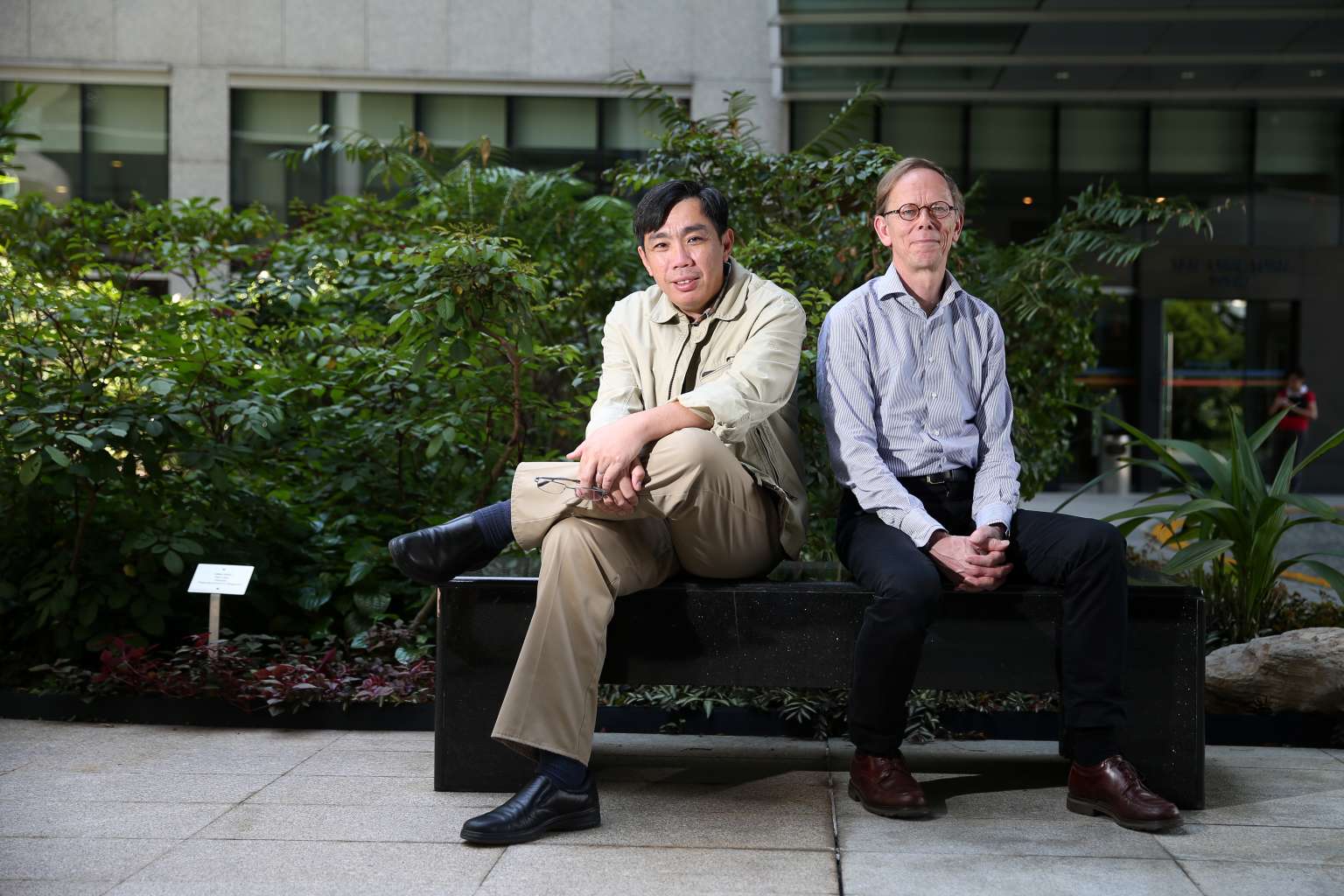Global arbiter of animal names gets steady funds
Endowment will ensure its sustainability, help it better coordinate scientific research
Sign up now: Get ST's newsletters delivered to your inbox

The commission, headed by president Jan van Tol (right), will be based at the Lee Kong Chian Natural History Museum, which Professor Peter Ng, one of the commissioners, heads.
ST PHOTO: NEO XIAOBIN
A global commission that helps to standardise the scientific names of animals was saved from extinction two years ago, when the National University of Singapore (NUS) agreed to fund it to the tune of $100,000 a year for three years.
Now the International Commission on Zoological Nomenclature (ICZN) has found steadier footing in the form of a $1.35 million ICZN Secretariat Endowment Fund, almost all funded by the Lee Foundation.
The commission had been struggling financially previously, after the British-based charitable trust that was funding it ran out of cash.
The fund will be announced today at the general meeting of ICZN held in conjunction with the 32nd International Union of Biological Sciences Conference in Berlin, Germany. Other donors and supporters include the American Association for Zoological Nomenclature, the Ichthyological Society of Japan and several private individuals.
The endowment fund will not only ensure the long-term sustainability of the commission, but also help it set up a secretariat to coordinate cases involving conflicts over an animal's scientific name.
"By building up an endowment comprising gifts from the public and private benefactors around the world - an approach similar to the funding model of the Lee Kong Chian Natural History Museum - it will allow ICZN to enjoy long-term operational sustainability," said ICZN commissioner Peter Ng, who also heads the museum.
Only the interest generated from the ICZN Secretariat Endowment Fund can be spent.
In the past, the commission lived largely on a hand-to-mouth basis, spending donations when they came in. The fund will also support the operations of the ICZN Secretariat, which will now be based at the Lee Kong Chian Natural History Museum in NUS. It was previously based at the Natural History Museum in London, before moving to NUS after the university agreed to fund it in 2013.
The secretariat is responsible for coordinating the commission's activities worldwide.
This is important, as the organisation's 25 commissioners are volunteers who hail from around the world and are senior scientists and professionals in universities, museums or institutions.
"This is why it is important to have a secretariat, without which things would be extremely chaotic," said Prof Ng. "Singapore is, in many ways, the perfect place for the secretariat as we are so well connected - technologically as well as scientifically, and NUS is the perfect nexus as we are a global university centred here."
Prof Ng added that it was appropriate that the secretariat be based in Singapore, "especially as this is a part of the world where science is growing at a rapid pace and the challenges associated with biodiversity discovery conservation are especially acute".
Dr Jan van Tol, president of the ICZN, said: "The establishment of the secretariat at NUS is also an implementation of my vision that ICZN has to evolve into a truly international organisation, with a strong representation in the mega- diverse regions of the world."


